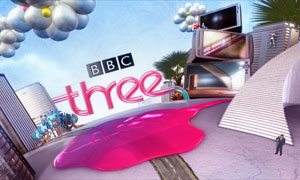 BBC director-general Tony Hall has defended plans to move the youth-skewing TV channel BBC Three online as part of a plan to make £100 million in savings.
BBC director-general Tony Hall has defended plans to move the youth-skewing TV channel BBC Three online as part of a plan to make £100 million in savings.
Subject to the approval of the BBC Trust, BBC Three will cease as a linear channel in the autumn of 2015.
Lord Hall said that with a licence fee that will have been flat for five years and extra costs, such as World Service, S4C and the roll-out of broadband to absorb, savings had to be made. “I believe it’s the right thing to do: young audiences – the BBC Three audience – are the most mobile and ready to move to an online world. 25% of viewing by 16-24 year olds is to catch-up or other screens and over the next few years we expect that to reach 40%. We recognise that, for now, most of this audience still do their viewing on television, and that is why we plan to show BBC Three’s long-form content on either BBC One or BBC Two”.
BBC Three’s content budget will be reduced from around £50 million to £30 million. Savings made will go into drama on BBC One.
The channel, which launched now mainstream programmes including Little Britain and Gavin & Stacey will cease DTT, satellite and cable distribution. Some of its shows also continuing through the BBC iPlayer. Previously the BBC had said BBC Three would act as more as a feeder channel to BBC One with BBC Four fulfilling the same role for BBC Two. Lord Hall said that BBC Three’s online content would find its way onto the two main channels.
By closing a whole channel Lord Hall is avoiding “death by one thousand cuts” and safeguards the future of BBC Four.
“BBC Three will continue to do all the things we love but it will also have the freedom to break traditional shackles and allow the BBC to be a leader in digital change. It will not just be a TV channel distributed online,” said director of television Danny Cohen. “There is a wonderful creative opportunity here to develop new formats with new programme lengths – and to reach young audiences in an ever growing number of ways. Will we still want to make all of our current affairs documentaries at 60 minutes in the age of Vice and YouTube?”
However, BBC Three is not going quietly. A petition on the Change.org website had already reached over 50,000 signatures by Thursday morning.
In February 2010 it emerged that there were plans to shut the progressive music station BBC 6 Music. Support for the channel kept the digital only service on the air and audiences are such that it is close to overtaking the analogue distributed Radio 3.
BBC Three was launched in February 2003 after the closure of BBC Choice; at the same time BBC Knowledge was transformed into BBC Four. Arguably BBC Three has succeeded in its mission to encourage take-up of digital services and is moving on.
At the Westminster Media Forum Thursday Jonathan Thompson, Chief Executive, Digital UK – not speaking about BBC Three specifically – said there is no sign of a lack of commitment to DTT by the BBC.